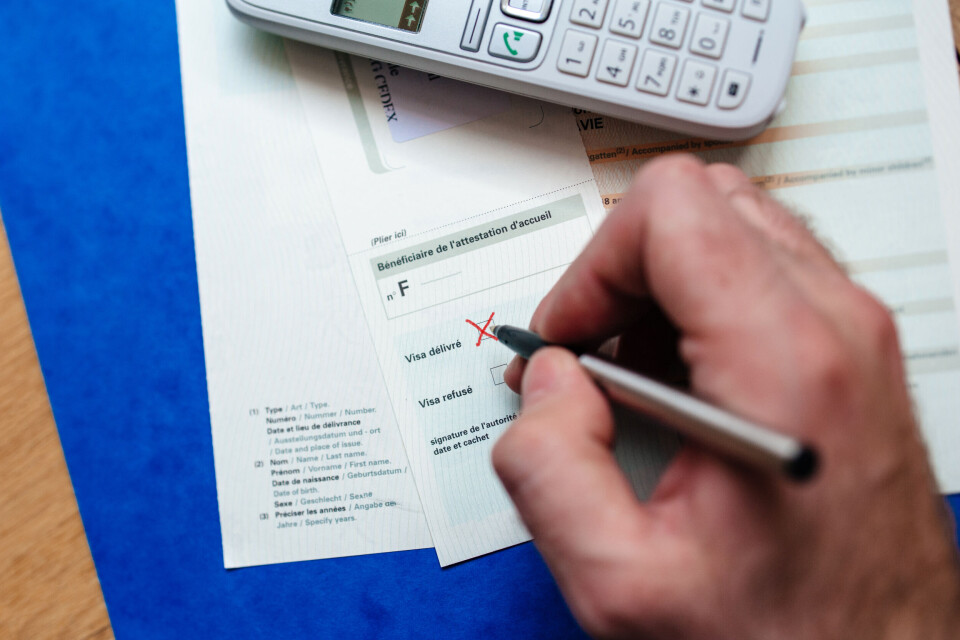-
Is health insurance required to return to visit England from France?
Certain health access remains free at the point of use for all
-
Do self-employed people in France put their personal assets at risk?
Rules for self-employed workers are different than for employees
-
Are there noise rules for motorcycles in France?
‘Sound radars’ may soon come into force following trial
Is an attestation d'accueil still needed for people visiting France?
We look at the rules surrounding this French document and whether visitors are asked to show it

Reader Question: I read online that friends visiting my home need an attestation d’accueil from the mairie, is this really necessary? Can I just provide a letter confirming their stay?
An attestation d’accueil is a ‘reception certificate’, needed in theory by visitors from countries outside the Schengen Area who come to stay with you in France for less than three months.
It is not required for those coming from within the Schengen Area, or those who are visiting France but staying in a hotel, Airbnb, or other form of accommodation.
Some groups of people are exempt even if travelling from outside the Schengen Area. These include:
-
Those with a visa for a Schengen Area country
-
Those applying for a residency permit within two months of entering France
-
People coming for a humanitarian stay or part of a cultural exchange
-
People coming due to a medical emergency
-
People coming because of the funeral of a relative
Is this document necessary?
If none of the above situations apply, the answer will depend on where your friends are visiting from – whether from a country where people need a visa to enter France for short stays (of up to 90 days) or from visa-waiver countries.
Realistically, the attestation d’accueil is much more important for those who need a short-stay visa to visit - and it is in fact part of the required paperwork to attain a visa for people who plan to stay with friends.
For those travelling from visa-waiver countries, such as the US and the UK, an attestation d’accueil is technically required but we do not know of any cases where it has been checked when entering France.
Members of The Connexion team report receiving many visits from friends and family from the UK and US and none have been asked for an attestation d’accueil. There is also no information pointing to any defined penalties for not producing one, once in France.
The Connexion previously spoke to lawyer Sarah Sahnoun who confirmed that in most situations, the document is not needed.
It therefore comes down to whether you and your visitors want to get one in order to be extra safe.
In theory people coming from visa-waiver countries who need one but do not produce one when asked at the border could be denied entry, but this is also very unlikely, and often simply explaining “I’m staying with a friend” or showing you have money to cover your trip is sufficient.
Since 2021, the UK government has stated on its website that those who are asked to present an attestation d’accueil but cannot have the alternative option of proving they have enough funds (of at least €120 per day) for the duration of their visit.
Again, for travellers from most visa-waiver countries, this is not likely to be necessary.
Read more: Why the EU’s new Etias visa-waiver system has been delayed again
If someone wants an attestation, how do you get it?
If you do need an attestation d’accueil, you request the document at your local mairie – usually you will have to book an appointment.
The person hosting (ie. living in France), is responsible for the application, and will need to purchase a timbre fiscal for the request, either online or in a tabac.
It costs around €30, and needs to be purchased before going to the mairie, as it is one of the documents required.
You must also bring a number of other original documents and information with you to the mairie, including:
-
Proof of identity (for non-French citizens this must be your residence card)
-
Proof of address
-
Proof you are the legal owner, or tenant, of the building where the person will be staying
-
Proof you have enough financial resources to support the visitor(s) through the duration of their stay if they are unable to. This can be done with tax notices or your last three payslips
-
A document proving you can house the visitor comfortably (an apartment size of 14m² per visitor for the first four, and then 10m² per visitor after this)
-
If the attestation d’accueil is for a minor, a letter from the parental authority declaring the length and purpose of the visit
-
Knowledge of visitor’s passport number, as this must be filled in on certain forms
You will then be able to pick the form up from the mairie, again via an appointment.
Note that it takes around two weeks for the request to be processed.
Sometimes, a longer examination may take place, but you will receive a récépissé from the mairie to prove you have applied.
Once you receive the certificate, you should send it to the visitor coming to France, so they can use it as needed.
For those arriving via a visa, they will need to attach it to their visa application, and for those arriving in France who have a visa waiver, they could in theory be asked to show it at the border.
Related articles
Explainer: Common visa options for visiting and moving to France
Post Brexit do I need a visa when leaving France for an EU holiday?
























